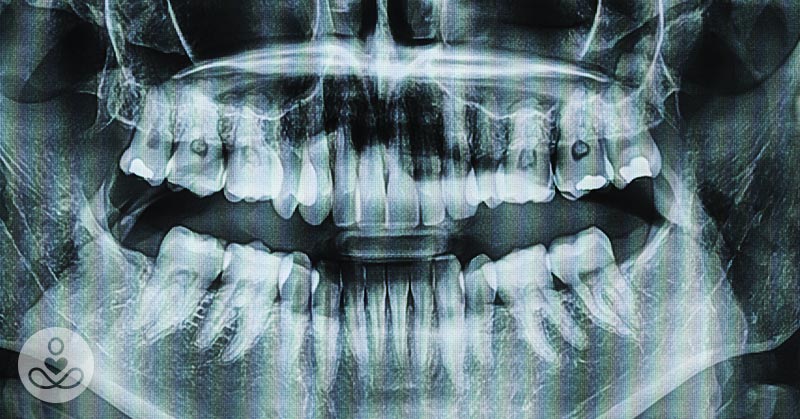Professor Paul Sharpe of King’s College London Dental Institute thinks he’s found a revolutionary new way to treat tooth decay: by teaching your body to regenerate damaged teeth in a short period of time.
Cavity Fillings vs. Tideglusib
To start, it will help to understand a little about how your body usually responds to damage or infection:
When your tooth suffers trauma (anywhere from a minor cavity to walking into a telephone pole and chipping your tooth), the soft pulp on the inside of your tooth becomes exposed to the elements and can lead to an infection.
Your body responds by triggering the production of a very thin layer of dentine (a type of calcified tissue) as a protectant. However, this thin protecting layer can’t withstand a major cavity or injury, which is why dentists fill in the missing tooth minerals with an artificial aggregate (ie. a filling). This prevents the spread of infection and eliminates pain, yet it doesn’t actually heal the damage done to your tooth.
But treating a cavity with Tideglusib doesn’t work like that.
Researchers believe applying Tideglusib can actually trigger your body to heal a cavity completely and restore the lost minerals. They explain their approach is “a novel, biological approach to dentine restoration that stimulates the natural formation of reparative dentine via the mobilization of resident stem cells in the tooth pulp.”
Let’s break down that science jargon:
Tideglusib is a GSK-3 antagonist, which means it interferes with the enzyme that tells your body it’s done producing that thin dentine layer to cover your damaged tooth. Without that “red light” signal, you will continue to produce dentine so that you’ll quickly make enough to completely fill in the eroded tooth minerals.
So, did Tideglusib as a dental treatment stand up to lab tests?
Vitor C. M. Neves, Rebecca Babb, Dhivya Chandrasekaran & Paul T. Sharpe applied collagen sponges soaked with Tideglusib to the damaged teeth of lab mice. The result? “Almost complete repair of the lesion was observed after 6 weeks”!
As the sponges slowly degraded, they were replaced by naturally produced dentine- a complete repair of the tooth. With such promising results underway, Sharpe believes this could be the start of a completely new approach to treating tooth decay.
The research is still in its early days, being a study done in mice (and not a randomly selected group of mice, at that). But since Tideglusib has already been approved to test as a treatment for Alzheimer’s disease, researchers are optimistic that bringing this dental treatment to clinical trials and then to market could be relatively fast.
“Using a drug that has already been tested in clinical trials for Alzheimer’s disease provides a real opportunity to get this dental treatment quickly into clinics,” says Sharpe. Until then, you should be taking the proven steps to help prevent cavities and tooth decay, and promote healthy teeth and gums.
Disclaimer: This information is not intended to be a substitute for professional medical advice, diagnosis or treatment and is for information only. Always seek the advice of your physician or another qualified health provider with any questions about your medical condition and/or current medication. Do not disregard professional medical advice or delay seeking advice or treatment because of something you have read here.

